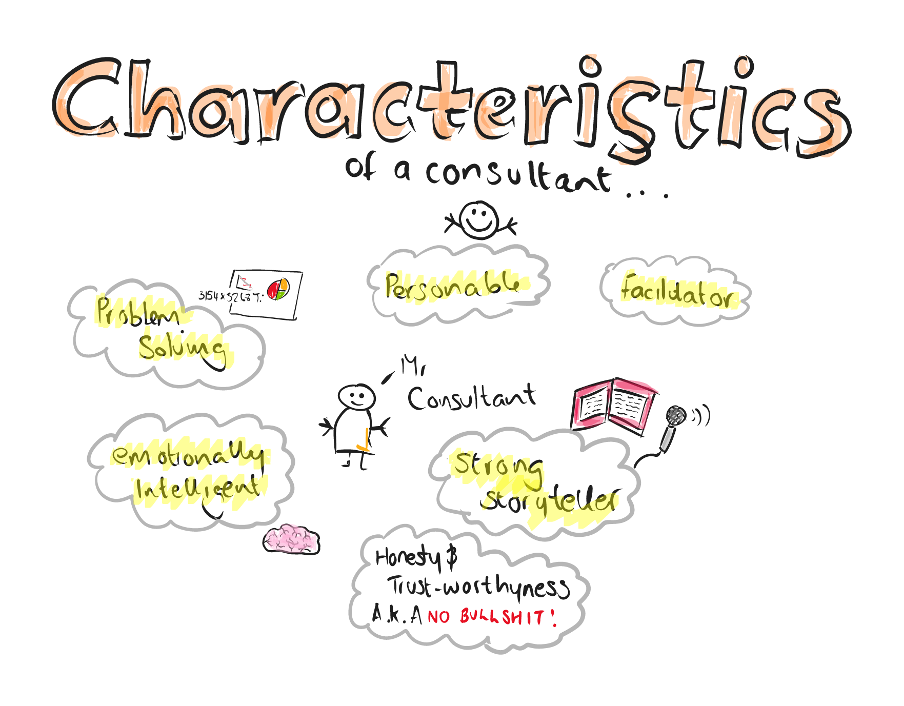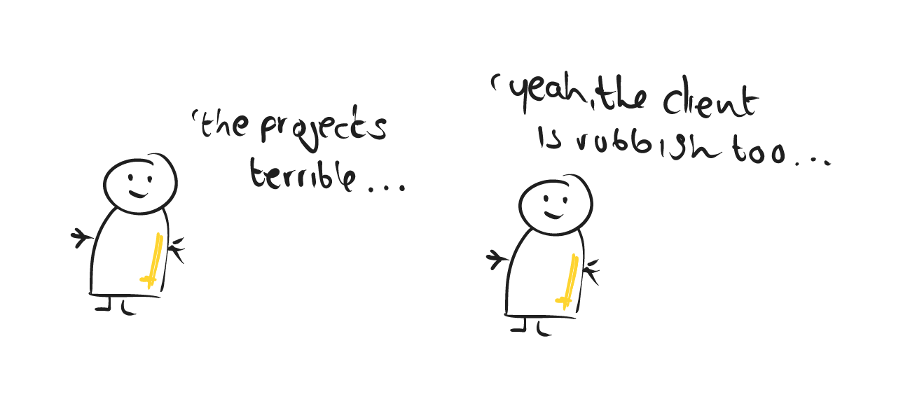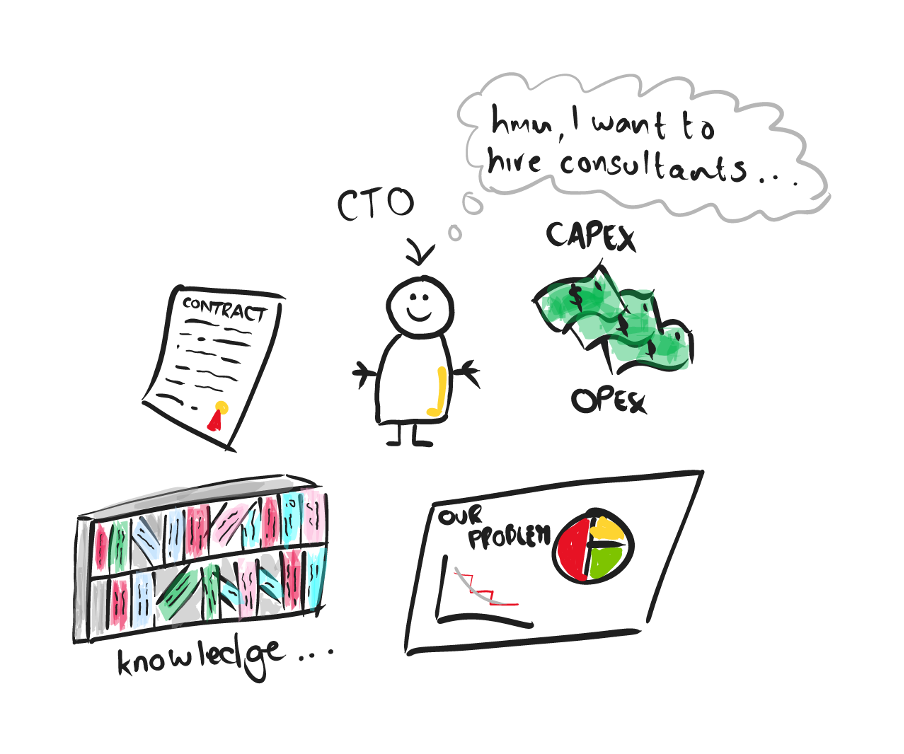Being a good consultant
Each day I look at how I conduct, consume & traverse the world around me. Analysing the things I say, do, & how I choose to interact with people. I’m aware of the power of my words & actions & the impact that has on people. I do it with purpose, as I live my life. When I do make a mistake, it hurts, but I learn.
I’m happy about it all. I’ve worked hard to be who I am, & whilst its sometimes tough when I don’t get the love or adulation I would expect, in fact I’m occasionally met with aggression & people trying to take me down, I have learnt not to care as much about that. I choose to expose myself (not like that, I’m not that guy) & with that comes the criticism.
Even writing about this I have little fear, it’s not for you, it’s for me. Its cathartic. If you can take something away from it, great. If not or you think I’m a self-serving self-promoting wanker, no problem. Move along. I thrive on knowing I’m awesome at what I do, awesome at being a human being & that’s what I wanted to talk about today, being an awesome human being but also, being an awesome management consultant.

Being a consultant
I work with many different types of consultant. Some old-school veteran old timers who have seen it all, but some box fresh new straight out of university. And it occurred to me
As I’m embarking rollout out some Consultancy 101 training for our people, well, what on earth makes a good consultant? Are you one? Or do you forget your position?
Mistakes
How often have you seen consultants do this, I know I have….
- Consultants doing their expenses on client time in the open
- Consultants bragging about their expensed meals or that extra bottle of Moet they had
- Consultants doing other client work when in a client office
- Consultants being a bit ‘loose with their lips’ when speaking on deficiencies with the client or project
- Consultants in-fighting or politicking whilst on client site
I think it’s easy to forget that a typical consultant will be billed to the client somewhere between £600-1200 a day & you have to be mindful of that even more so, in todays economic climate, so acting like you’re an reassuringly expensive resource is part of the job. What does that mean? Well it means being professional. It means being appropriately presented; it means being mindful of the fact the client will want to see exactly ‘what’ their money is being spent on. Effing & jeffing by the coffee machine, complaining about the project or slating another vendor probably won’t cut it.

Why do companies use consultants?

Whilst there’s often a lot of trash talk about consultants ( I trash talk myself about consultants ) , there’s a number of valid reasons companies elect to hire consultants. Some you’ll know, some maybe you haven’t thought of before.
Cost Caps/CAPEX & other financial reasons
Dependant on client or project, sometimes organisationally it’s easier to get spend approval by baking in costs into a project’s OPEX, & therefore consultants can be used to help spend budget
External knowledge
Clients understand they won’t often have the breadth of sector or vertical knowledge a consultant might. Using consultants can be a great way to burst up knowledge & compare the clients understanding with the external market.
Problem validation
Clients often want their understanding of a problem validating & using consultants can be a great way to confirm a suspicion or understanding
Budget use
Although we spoke about financials above, remember departments often have budget which if unused they won’t get the following year. It’s common for companies to spend unused budget on consultancies for ad-hoc work & let’s face it, you’re not going to do too much damage by hiring an experienced consultancy firm to come in & do stuff.
Key skills & characteristics
I wanted to summarise not only key skills & characteristics I think are important for consultants but also, important just…generally…as just being a decent human being means you do this stuff.
- Doing as you say you’re going to do – no matter what, say you’re going to do something then do it. Without fail.
- Be professionally presentable – I don’t mean rocking a three-piece Tom Ford suit & the Rolex where it’s not appropriate (& I don’t want to get into a what I think useless conversation about the importance of dress code, that battle is being done over Linkedin here) but looking smart, appropriate & that you’ve taken some care & pride into that day rate the clients paying for
- Thinking of yourself as a product – I say this all the time to people. It’s not just who you are, but think of yourself as a turnkey product. The things you say, do, how you behave, be consistent in that.
- Do way more than that which is asked – Difficult but always over-deliver where you can. Clients are paying a ton of cash for your expertise, you should leave any organisation in a better state than you found it.
- Don’t take on clients organisational problems & politics. – It’s very easy to become the client, especially when you’re on a very long engagement. I like to remember your key skill as a consultant is you are not a client employee. You have outside perspective & skills & therefore are & shouldn’t be bound to company politics.
I wanted to call one thing out specifically as its worthy of a paragraph in its own right & a subsequent personal anecdote. As a consultant, sometimes the industry perpetuates this too, as a consultant you’re often expected to be an expert in everything. That’s not possible. And most normal human beings know that. It’s absolutely ok to go on a journey with the client and learn-as-you-go. Done in the right way, demonstrating capable & quick concept grasping or core research skills, these are also the skills of a consultant. Bullshitting your way through a work problem is not acceptable. So now, onto the anecdote, & this time I’m not talking about me!
I was working for a very prestigious bank with a small delivery team led by someone in the same org but not me I hasten to add. Each day this leader/consultant would pontificate about how much they knew about the client’s particular vertical, in this case FX. Because this leader/consultant had very adept bullshitting skills learnt through being a ‘classic consultant’ often it was very easy to believe them. It was almost a tap dancing on fire fake it until you make it kind of thing. However, one day this person had a day off, & I overheard the client insulting the person & saying they had little faith in what the entire team were doing based on this.
Now, if this leader/consultant had more awareness & less ego, it’d have been entirely acceptable to say ‘I don’t know’ but of course, some consultants feel pressured to have all the answers. That behaviour really made us all look silly & it was a stark reminder to me to never say you know something when you don’t – because there’s always someone there to catch you out.
Security & privacy
When it comes to not what to do, another thing consultants should be mindful of is their privilege. Privilege to sensitive data & data that’s NOT YOURs. I was on a train the other day, three guys sitting on a table in front of me. After spending minutes watching them, I could identify their names (from their-on-screen bios), where they worked, (via their Network selection SSIDs) & on screen, with no privacy filter, I could see their commercial approach for recruitment, costings, who they use

etc etc on behalf of their client. Staggering, not including the loud conversation they were having with no thought to who those around them could be. As a consultant, you should be mindful about this. Also, think about NOT wearing your branded lanyard with your full name, title & company in full view!
Physical Health to promote mental health
One of the things I try to do to hack my performance, is to consider my physical health which in turn helps take care of my emotional health. I create gaps in my schedule so as to be able to exercise and under no circumstances do I let anyone, work, clients, family get in the way of that. I believe by exercising regularly I increase my cognitive performance by at least 25%. I think more clearly, I’m more relaxed & I’m more emotionally resilient.
In Summary
Think about how you conduct yourself as a consultant, the skills you have, & the skills you may want to develop.




